Philip Hensher
The best novels of the year were Colson Whitehead’s The Nickel Boys (Fleet, £16.99) and James Meek’s To Calais, In Ordinary Time (Canongate, £17.99). These days, novels are often praised for the gravity of their subjects, but what elevates Whitehead’s treatment of race and American brutality is the elegance
of its style and the satisfying inventiveness of its form.
Meek’s book is an astounding linguistic fantasy about the advent of the Black Death. French, Anglo-Saxon and Latin collide in a world of fake news, uncertain sexual borders and the dread of a catastrophe which looks in some ways very much like our own. The other novel I thoroughly recommend from my year’s reading, incidentally, is George Eliot’s glorious Romola — a bit late in the day, I know (it was published in 1863).
Oliver Soden’s Michael Tippett (Weidenfeld, £25) was exemplary, and placed this wonderful, neglected, undeniably silly composer in his world of political idealism and radical experiments. I also very much enjoyed Benjamin Moser’s Sontag: Her Life (Allen Lane, £30), sympathetic but ultimately devastating for Susan Sontag’s reputation.
Jenny Colgan
It’s going to make a lot of lists, but I thought Lisa Taddeo’s Three Women (Bloomsbury, £16.99) was something genuinely new and exciting to read. And I loved James Meek’s To Calais, In Ordinary Time (Canongate, £17.99). It felt like stepping into a different era, and I believed in it ferociously.
Katie Hickman’s She-Merchants, Buccaneers and Gentlewomen: A History of English Women in India (Virago, £20) is eye-popping and extremely readable. Little by Edward Carey is great (Aardvark, £12), as is Ghost Wall by Sarah Moss (Granta, £9.99). Expectation by Anna Hope (Doubleday, £12.99) was what I’d hoped Sally Rooney would be like. Finally, Lowborn by Kerry Hudson is a book that cuts like a knife (Vintage, £14.99).
Roger Lewis
The greatest book about Brexit was published back in the 1950s — C.V. Wedgwood’s The Great Rebellion, in which she said of Cromwell and his troops: ‘Discontent and disorder were signs of energy and hope, not of despair.’ Well, we know how that ended — badly for all concerned.
In our own time, the best account so far of the Leave–Remain civil war is Patrick Kidd’s The Weak are a Long Time in Politics (Biteback, £12.99). Much more than a collection of parliamentary sketches for the Times, it coheres as a book — a masterpiece of satire. When the author says that the House of Commons is filled with exotic fauna, ‘loons, thieving magpies, gannets, boobies, bustards, lots of spotted shags and a multitude of tits’, I thought it’s the case that he’s seen more tits than Bill Oddie.
I always enjoy the works of Graham Holderness — thrillers about Shakespeare as a vampire and so forth. His latest is Meat, Murder, Malfeasance, Medicine and Martyrdom (EER Publishers, Brighton, £19.99), a psychological history of Smithfield, the markets and hospitals. Jack the Ripper, Sweeney Todd and Heinrich Himmler are all in there somewhere.
Clare Mulley
Perhaps unsurprisingly in a year with many second world war anniversaries, my choices all shed new light on that conflict. In Henry Hemming’s sure hands, America’s uncertain progress towards direct engagement becomes riveting history in Our Man in New York (Quercus, £20). Sonia Purnell tells the remarkable story of the only special agent to serve behind enemy lines with Britain’s SOE and its American counterpart, the OSS, and later join the CIA. The one-legged Virginia Hall defies all expectation in A Woman of No Importance (Virago, £20). Caroline Moorehead’s A House in the Mountains (Chatto, £20) provides a brilliant overview of the war in Italy from the perspective of the female partisans.
Finally, the winner of the Costa Book of the Year, Bart van Es’s The Cut Out Girl (Penguin, £10) is part war history, part family history and part detective thriller — and, yes, it is greater than the sum of its parts.
Daniel Swift
I spent much of this year reading books about climate change. The irony of this was not lost on me, particularly when I was reading those books on planes. I think everyone should probably right now read David Wallace-Wells’s The Uninhabitable Earth (Allen Lane, £20), which tells the grim story with as much optimism as possible, and which gives all the facts.
For a surprising spin on those facts, I loved Todd Borlik’s anthology Literature and Nature in the English Renaissance (CUP, £84.99). It’s a left-field choice for book of the year, and — as with all academic books — is stupidly expensive.But it’s a beautifully scholarly compendium of nature writing from 16th- and 17th-century England, including such treasures as an amazing poem written in the voice of a squirrel lamenting deforestation. Nothing I’ve read in this year of climate catastrophe made me think more.
Antony Beevor
Julian Jackson’s biography of General de Gaulle, A Certain Idea of France (Allen Lane, £35), has rightly achieved huge admiration in Britain (also winning the Duff Cooper Prize) and even among the cognoscenti in France, which is an extraordinary achievement. It leaves previous works entirely in the shade, largely due to impeccable research and a rare objectivity and empathy.
The main challenge Jackson’s masterpiece faces to the title of greatest biography of recent years comes from Charles Moore’s Margaret Thatcher, Volume III: Herself Alone (Allen Lane, £35), a superb work of contemporary history and perceptive biography — which will mercifully help us to overlook some of his more eccentric obsessions with current politics.
Christopher Howse
On a journey across Spain this spring, as the train consumed the miles I consumed Mark Le Fanu’s Believing in Film: Christianity and Classic European Cinema (I.B.Tauris, £72). The author has the rare knack of bringing to life films that you have never seen, and of writing about them in a style beautifully free from the clotted syntax of academe. Yet he deals in big ideas, the underlying sympathy and antipathy to Christianity in the golden age of European art cinema, with Tarkovsky the most important figure.
Earlier this year I was struck by the social mayhem (crimes, scandals, fires, transgender excitements) running in parallel with political incompetence in 1776: A London Chronicle (The Bunbury Press, £25). It seemed familiar. That was the year Britain lost its American empire. What we shall lose now, who knows? But Justin Lovill’s account is as entertaining as it is instructive.
Anna Aslanyan
‘Few things are necessary,’ claims the teenage heroine of Proleterka, Fleur Jaeggy’s 2001 novel, recently reissued in Alastair McEwen’s translation (And Other Stories, £8.99). Perhaps the reason Jaeggy’s writing is so free of convention and so powerful in its asceticism is her ability to freeze out all that’s unnecessary, to say only what must be said.
Deborah Eisenberg excels in another kind of minimalism in her short story collection Your Duck is My Duck (Europa Editions, £12.99), conjuring a complex picture of our times in six parables. Short prose is where it’s at. As another master of the genre, the Israeli writer Etgar Keret, puts it in his collection Fly Already, translated by Sondra Silverston and others (Granta, £12.99): ‘A story isn’t a magic spell or hypnotherapy; a story is just a way to share with other people something you feel, something intimate, sometimes even embarrassing.’
A.N. Wilson
The Elizabethan Image by Roy Strong (Yale, £35). The author is a man of parts, a great museum director, an inspired gardener and garden historian and a defender of our threatened heritage. His primary area of expertise, however, which led to him becoming the youngest ever director of the National Portrait Gallery, was always Elizabethan portraiture. In this book, he returns to his first love, revealing that he has kept up with all the developments in modern scholarship. The result is a sumptuous, beautifully illustrated volume, which unpicks the iconography of such familiar paintings as the ‘Armada’ portrait and the ‘Pelican’ portrait of our greatest British head of state. A book to treasure.
Stephen Bayley
Richard Bassett is as refined, amused and amusing as his latest book. Last Days in Old Europe (Allen Lane, £16.99) is an enchantingly old-fashioned account of Trieste, Vienna and Prague as the Cold War melted while Bassett was a foreign correspondent. I suspect he was a spy, but more in the style of Eric Ambler than Edward Snowden. If you need a field guide to the Thurn-und-Taxis-Hohenlohes, this is it.
Only zealous bores are strict vegetarians, but everyone senses that meat is becoming less essential. Heather Thomas’s The Greek Vegetarian Cookbook (Phaidon, £24.95) came with me for a month in the western Aegean so that the recipes could be tested in situ. They are practical and delicious, if not always authentic to the pedant. I mean — Greek pizza in ten minutes? But it works.
A brilliant book.
I was doubtful when a friend recommended Ian Sansom’s September 1st, 1939 (4th Estate, £16.99), a fanatically detailed investigation of the W.H. Auden poem. And at the beginning I thought Sansom really must have a friend in the publisher. But eventually I became engrossed. It’s a book of anecdotes, fragments, aperçus, diversions and confessions, possibly a little irritating, but also unforgettable.
Most annoying book of the year must be Benjamin Moser’s Sontag: Her Life (Allen Lane, £30). But let’s hope it closes the till on this needy, unreadable, voluntarily difficult, overrated, under-read individual whose (diminishing number of) admirers (in the orbit of the New York Review of Eachother’s Books) mistake incomprehensibility for profundity.
Frances Wilson
The two outstanding biographies of the year both tackle difficult men. Corey Robin’s The Enigma of Clarence Thomas (Metropolitan Books, £30) explores the conundrum of President Trump’s favourite judge. What I knew about Thomas is that Anita Hill accused him of sexual harassment; what I didn’t know is that he is both conservative and a rock-solid Black Nationalist. In a brilliantly innovative approach to biography, Robin unpacks Thomas’s ideology not by delving into his psyche but by tracing, with razor-like precision, the logic of his speeches, interviews and Supreme Court opinions.
The Lives of Lucian Freud: Youth, 1922–68 by William Feaver (Bloomsbury, £35) shows how the grandson of Sigmund Freud took the idea of the unrepressed id and turned it to his advantage. In this psychopathology of everyday life, Feaver, who talked on the telephone to Freud for 20 years, crowns himself Boswell to a satanic Johnson. In a market aimed at self-improvement, the pleasure of this book is infernal.
Allan Mallinson
I much admired Simon Heffer’s Staring at God: Britain in the Great War, the third of his four-part history of Britain, 1838–1939 (Random House, £30). Heffer is harder on Lloyd George and more tolerant of some senior officers than I am, but the book stands out for its humanity as well as its breadth and detail. He is particularly lucid on Ireland in 1916.
Jonathan Boff’s Haig’s Enemy: Crown Prince Rupprecht and Germany’s War on the Western Front (OUP, £25) had me jumping out of bed in the early hours: ‘Well into middle age, Rupprecht could sit down on the ground and then get up again without using his hands or arms.’ Who, well into middle age, wouldn’t want to check if he were equal to a Bavarian army group commander? He could be as stiff as any Prussian, and as big a bastard, but Rupprecht had twice to flee for his life — first in 1918 and then in 1944. Haig’s Enemy is a fine view of the first world war from the other side of the hill.
Mark Cocker
Dan Gretton’s I, You, We, Them (Heinemann, £25). Twenty years in the making, intended as an eventual 2,000-page double volume, this remarkably powerful book entails a dogged and worldwide pursuit of ‘the desk-killer’, the government functionary or business executive whose decisions so often cost human lives.
The model of this remote-control assassin is Hitler’s architect Albert Speer, but the German story is subsumed in a far more compelling and modern investigation of the collective amnesia which so often operates in the telling of national histories, including our own.
In Once Upon a River (Doubleday, £12.99), Diane Setterfield shows herself as the mistress of modern gothic, weaving a story about identity and family as meandering as the Thames around which the novel revolves. It is superbly paced and intricately structured — but her most beautifully drawn character is the river itself.
Honor Clerk
Hauling back minor classics from the recent past is the great preserve of Slightly Foxed, and among a rich choice of beautifully produced memoirs I can’t think of
a nicer Christmas present than The Brensham Trilogy by John Moore (Slightly Foxed, £48) — a brilliant, funny picture of Tewkesbury and rural Gloucestershire in the first half of the 20th century. A companion piece from the same era could be V. S. Pritchett’s A Cab at the Door (Slightly Foxed, £11), an account of a wildly unconventional childhood in London and Yorkshire.
Mark Mason
Diary of a Somebody by Brian Bilston (Picador, £14.99). The Twitter poet’s comic novel features more of his oeuvre (on a cooking disaster: ‘Do not go, lentil, into that good pie …’), but also a delightful plot that will have you cheering for our anti-hero all the way through. He faces life’s tribulations armed with nothing more than coruscating wit and a packet of custard creams. Bilston is up there with Tom Sharpe, even with P.G. Wodehouse.
Berkmann’s Cricketing Miscellany by Marcus Berkmann (Little, Brown, £14.99). It’s tricky plugging a friend in this slot, but really I’ve got no choice when confronted with a book which reveals Derek Randall’s verdict the first time he tried caviar: ‘Hey Greigy! This champagne is all right, but the blackcurrant jam tastes of fish.’
Robert Douglas-Fairhurst
Three biographies stood out for me. Casey Cep’s Furious Hours: Murder, Fraud and the Last Trial of Harper Lee (Heinemann, £20) tells the extraordinary story of a crooked American pastor who routinely insured the lives of his relatives before murdering them, and the unfinished book about him by the author of To Kill a Mockingbird. It’s as gripping as a thriller and as coolly dissected as a forensics report.
Hallie Rubenhold’s The Five: The Untold Lives of the Women Killed by Jack the
Ripper (Doubleday, £16.99) is a remarkable feat of detective work that brings back to life a group of women who until now have been known only through their deaths.
Finally, The Lives of Lucian Freud: Youth, 1922–68 (Bloomsbury, £35) reads like William Feaver’s posthumous love letter to the artist whom he served for many years as a modern Boswell. It is rich in gossip and written with effortless style.
Jonathan Sumption
Helen Parr’s Our Boys: The Story of a Paratrooper (Allen Lane, £20) is a work of astonishing power and originality, a compelling study of the realities of war, centred on the death of the author’s brother in the Falklands. It is at once intensely moving, completely objective and beautifully written.
Miles Taylor’s Empress: Queen Victoria and India (Yale, £25) is a highly original study of the impact of the queen on India, and that country’s impact on her, much greater in both cases than most of us had ever realised. It is almost (but not quite) free of the post-imperial hand-wringing which characterises most modern writing about the British Empire.
For a smaller corner of the same canvas, those of us who love south-east London will enjoy Margarette Lincoln’s Trading in War: London’s Maritime World in the Age of Cook and Nelson (Yale, £17.50), which uncovers the lost world of the London docks in the period when Britain first became a world empire based on maritime trade.
Peter Frankopan
I greatly enjoyed Orlando Figes’s The Europeans (Allen Lane, £30), a brilliant book about Turgenev and Louis and Pauline Viardot, and also about literature, culture and change in 19th-century Russia and Europe. It’s enormously impressive.
I read Tom Holland’s Dominion in draft and then in finished form (Little, Brown, £25). The author re-emphasises the significance of Christianity insistently, persuasively and, I think, admirably too.
Towards a Global Middle Ages, edited by Catherine Holmes and Naomi Standen (OUP, £41), contains some superb essays, and outlines new and important ways of looking at medieval history. It has set the cat among the pigeons in the academic world, but that is greatly to the editors’ credit.
Marcus Berkmann
My two favourite novels this year were ‘difficult’ books that weren’t really at all. Anna Burns’s Milkman (Faber, £14.99) won last year’s Booker amid huffles and snuffles that it was incomprehensible; but once you get used to its distinctive style it rattles along like a bestseller. It’s a tale of Northern Ireland during the Troubles that never mentions the words ‘Northern’, ‘Ireland’ or ‘Troubles’, but it’s written with such verve, humour and blank-eyed terror and is so skilfully plotted that I’m not surprised it has since sold half a million copies. Difficult, pah.
Having read all the rest of Kazuo Ishiguro’s novels, I finally descended on The Unconsoled (1995), only to discover that it’s possibly the best of the lot. This weird, long, dream-like meditation about an overworked concert pianist bouncing round an unnamed European city like a pinball is also Ishiguro’s funniest and most emotionally engaged work and really like nothing else you’ll ever read. I suspect it’s this clever and substantial book, rather than The Remains of the Day, that actually won him the Nobel Prize.
Mark Amory
My reading has been dominated by intelligent works of non-fiction, usually very long and serious, on subjects not chosen by me (judging a prize). An intriguing one was Our Man by George Packer (Cape, £25). He turned out to be Richard Holbrooke, an arrogant, rude, brilliant and ultimately disappointed American politician who did as much as any one man to end the Bosnian war. The author knew him, tells you when he is leaving out the dull bits, also tells you details about Holbrooke’s approach to tennis (competitive) and makes judgments on L.B. Johnson, Richard Nixon as well as many others I had not heard of, so you simply have to trust him. I did.
By way of contrast and relief, I was introduced to Mick Herron. Everyone else knows about Herron, who has written 15 books and been shortlisted for 20 awards. John le Carré and Graham Greene are often mentioned in reviews. The setting of Slow Horses (John Murray, £8.99) is a department of MI5 to which those who have failed in some way are banished; so everyone has a shameful secret. The style is oblique, intelligent, almost witty. The head of department, for example, whom we know to be somewhat dishevelled and past his physical peak, falls asleep on a park bench clutching an empty coffee cup. When he awakes, ‘it had 42 pence in it in small change’. The plot twists and surprises. So I immediately bought Dead Lions (Murray, £8.99) — same characters, almost as good.
David Crane
For anyone remotely interested in whales, Christopher Swann’s Seeking Leviathan is the ultimate Christmas present. For the best part of 30 years Swann has been taking people around the world whale-watching, and here, accompanied by an engagingly quirky text, is the astonishing photographic record of a lifetime’s fascination with whales. Coffee-table books don’t get more spectacular than this
(swannyc@hotmail.com, £125).
Continuing the theme, The Sea Journal by Huw Lewis-Jones (Thames & Hudson, £29.95) is a wide-ranging and beautifully illustrated trawl through more than 600 years of mariners’ sketch-books, logs and journals.
Claire Lowdon
‘The best story is one that reveals a truth, like something you see and understand in a dream but forget as soon as you wake up.’ By its own criterion, Mary Gaitskill’s This is Pleasure (Serpent’s Tail, £7.99) is the very best kind of story, defying easy paraphrase and reminding us why, pace Will Self’s predictions, the novel will never die. None of the many column inches devoted to the #MeToo movement has managed to articulate the complex, conflicting truths of sex and power contained within the scant 80 pages of this sly, spry novella. In our loudly polemical age, Gaitskill provides elegant and invigorating proof that certain things can only be conveyed in fiction.
At the other end of the spectrum, a novel that should have been a think piece: Jeanette Winterson’s unfunny comic novel, the Booker-shortlisted Frankissstein (Cape, £16.99), was predictably overpraised for its crude topicality.
Craig Raine
Eileen Hogan: Personal Geographies by Elisabeth R. Fairman (Yale, £50). Hogan is an immensely accomplished painter in her seventies. Think Dürer’s ‘Das Grosse Rasenstuck’ (‘The Large Piece of Turf’), the first picture to discover charisma in the ordinary, in the unimpressive. Hogan’s paintings are representational without being pedantically literal, swift, fluent, inspired in their choice of subjects, inspired in their laconic solutions, a million miles from academic painting, modest and immensely covetable. ‘Her Painting Apron’ (2017), oil on paper, is unassuming but definitive, a lovely, dirty, unforgettable thing, fixed for ever.
The book’s cover shows an impulse-watering sprinkler in urgent action. It is better than David Hockney’s bravura bigger splash — a justly famous capture of the impossibly evanescent. She can do people, too. Adam Phillips, the psychoanalyst, is here, with his Bob Dylan impulse-watering artfully sprinkled hair — painted in 2014, just before it more or less vanished.
Peter Parker
A chance encounter with a poster in a lift at Russell Square Tube station this autumn led me to the Wiener Library, and a remarkable exhibition of photographs by Gerty Simon. The name was unfamiliar, but Simon captured many of the leading political and cultural figures in Weimar Berlin, as well as producing luminous images of ordinary people now lost to history. Lotte Lenya was a frequent subject, as was the dancer Alexander Iolas, while a portrait of the elegantly crop-headed artist Renée Sintenis encapsulates the whole doomed era.
Jewish, Simon fled to London in 1933, where she continued her career, producing outstanding portraits of British personalities, among them Paul Nash, Alicia Markova, Peggy Ashcroft, Aneurin Bevan and a gamine Jennie Lee. Berlin–London: The Lost Photographs of Gerty Simon by Barbara Warnock and John March (Wiener Library, £19) triumphantly re-establishes her reputation and is generously illustrated with very well reproduced examples of her work.
Sara Wheeler
Paul Theroux’s 51st volume, On the Plain of Snakes (Hamish Hamilton, £14.99), reports on a Mexican road trip along the length of the US border, from Tijuana to Matamoros and then south. The author looks more deeply into the divided country than he did 40 years ago in The Old Patagonian Express, and he tries to make sense of it, finding hope despite the horror of disintegrating corpses from failed migrant journeys. He writes:
Mexico was for me a world of struggle, of incident, of questioning, of people under threat and prevailing over their humble circumstances, which was a lesson to me, of venerating the past and being true, being determined to live. I kept thinking with pleasure, I’m still here!
I also enjoyed Alice Oswald’s Nobody (Cape, £10). An invigorating book-length poem, perfect for a bedtime read before dropping off.
Got something to add? Join the discussion and comment below.
Get 10 issues for just $10
Subscribe to The Spectator Australia today for the next 10 magazine issues, plus full online access, for just $10.
You might disagree with half of it, but you’ll enjoy reading all of it. Try your first month for free, then just $2 a week for the remainder of your first year.

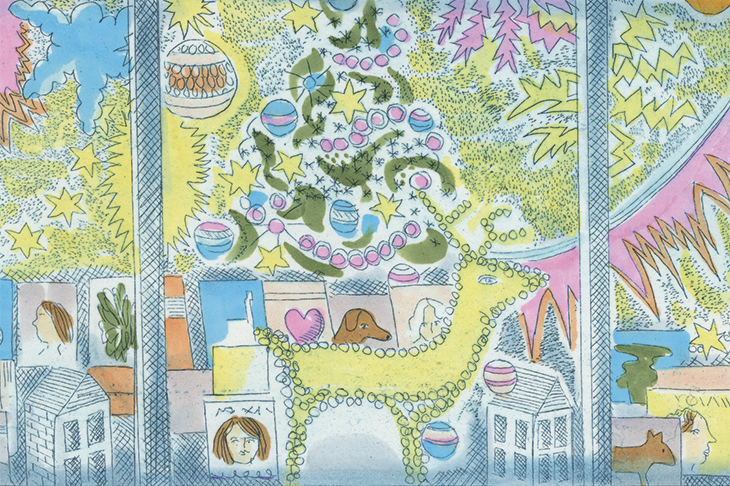
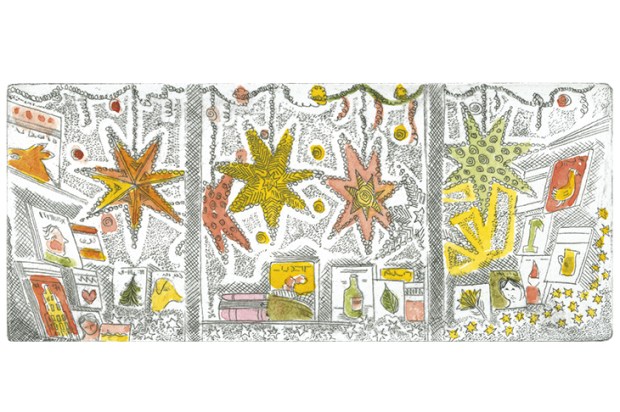
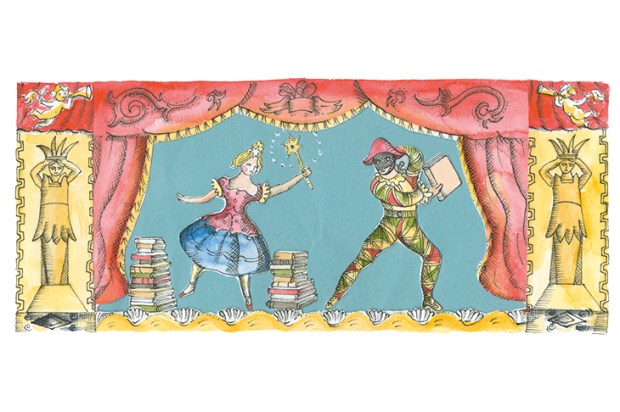
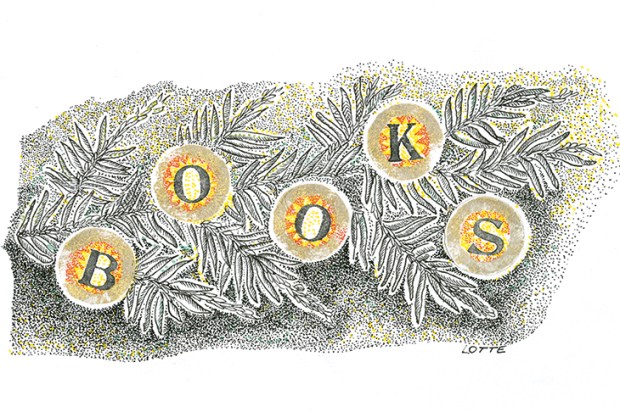
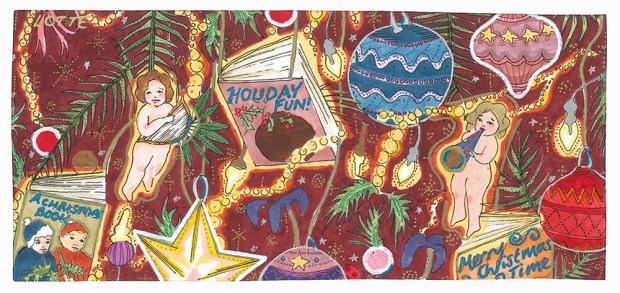
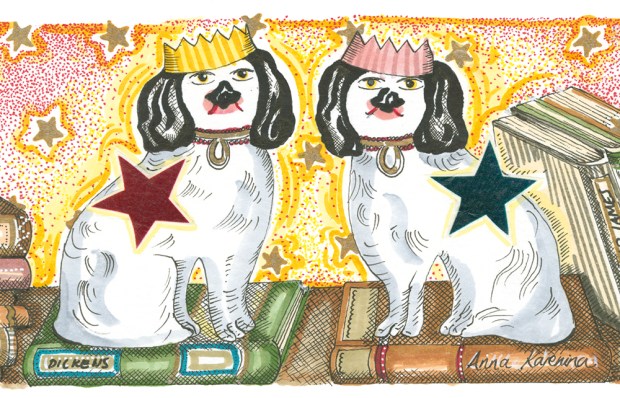
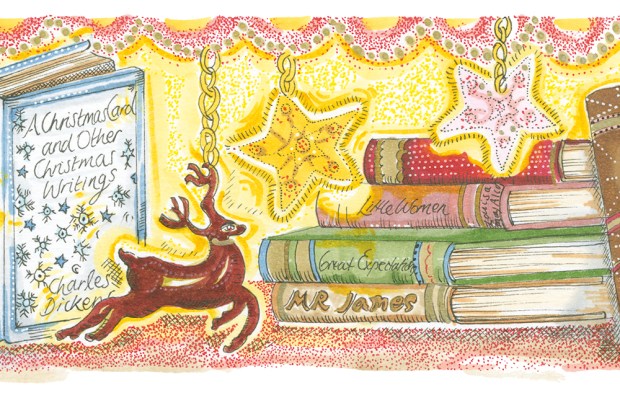






Comments
Don't miss out
Join the conversation with other Spectator Australia readers. Subscribe to leave a comment.
SUBSCRIBEAlready a subscriber? Log in